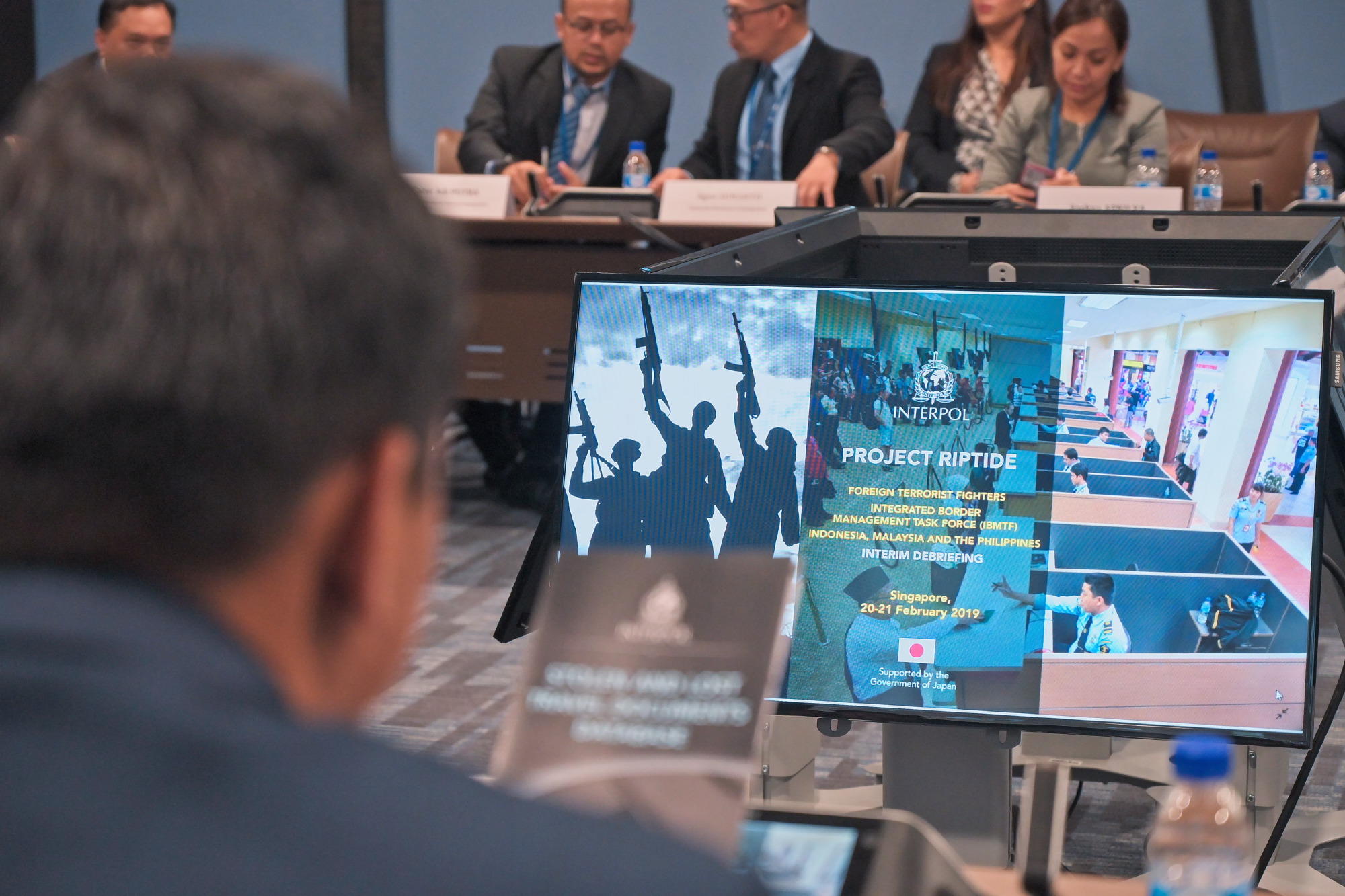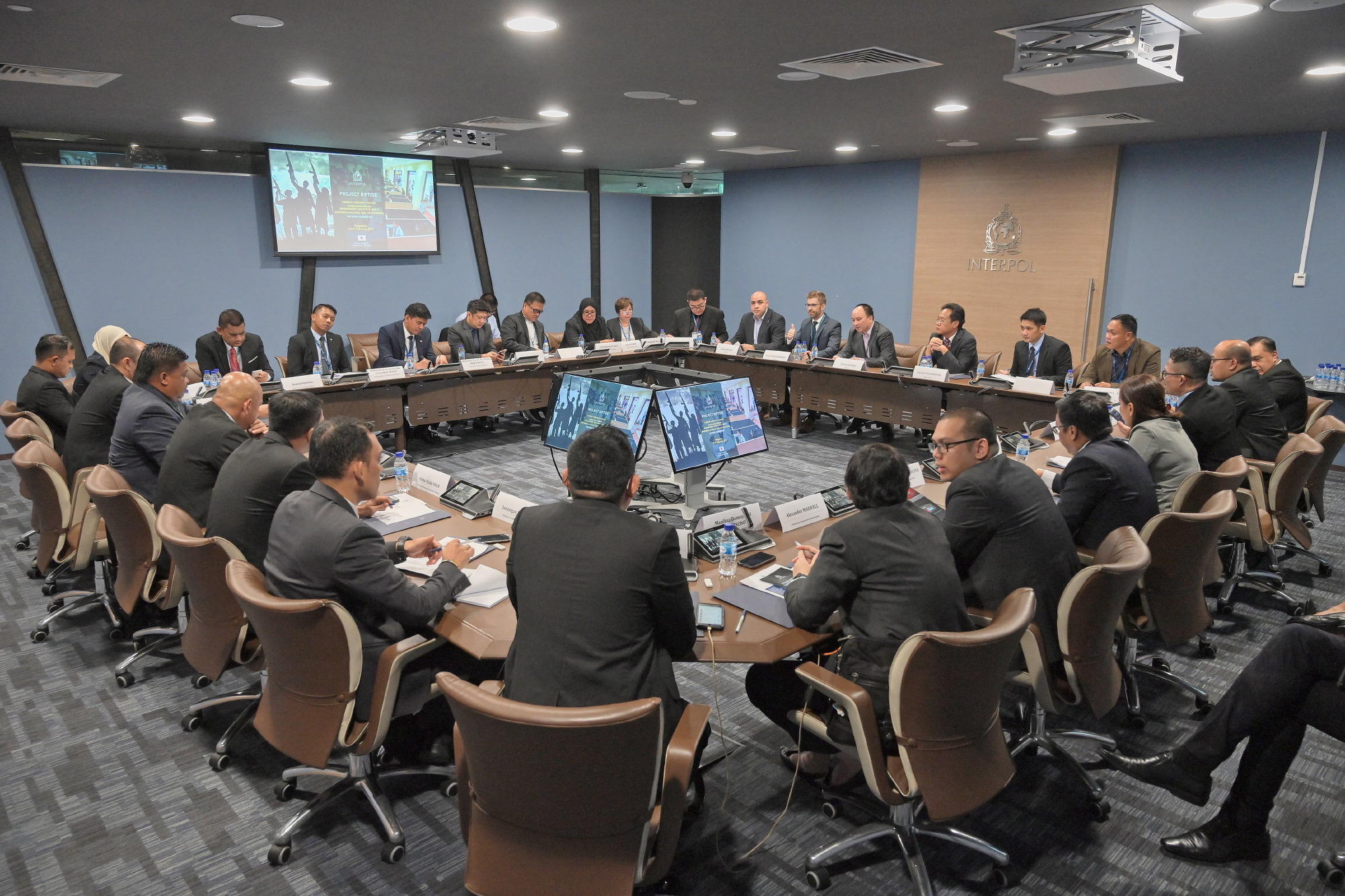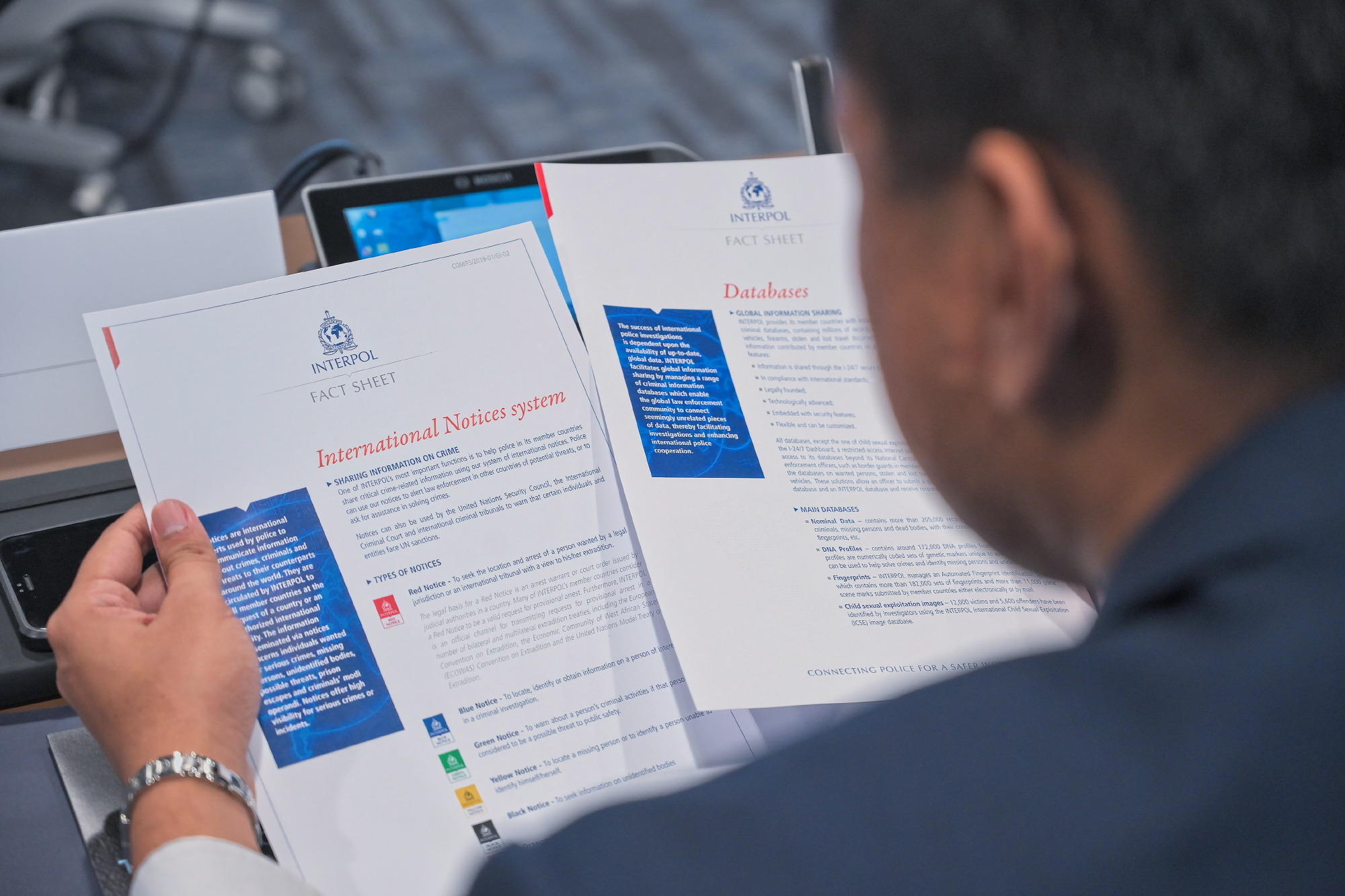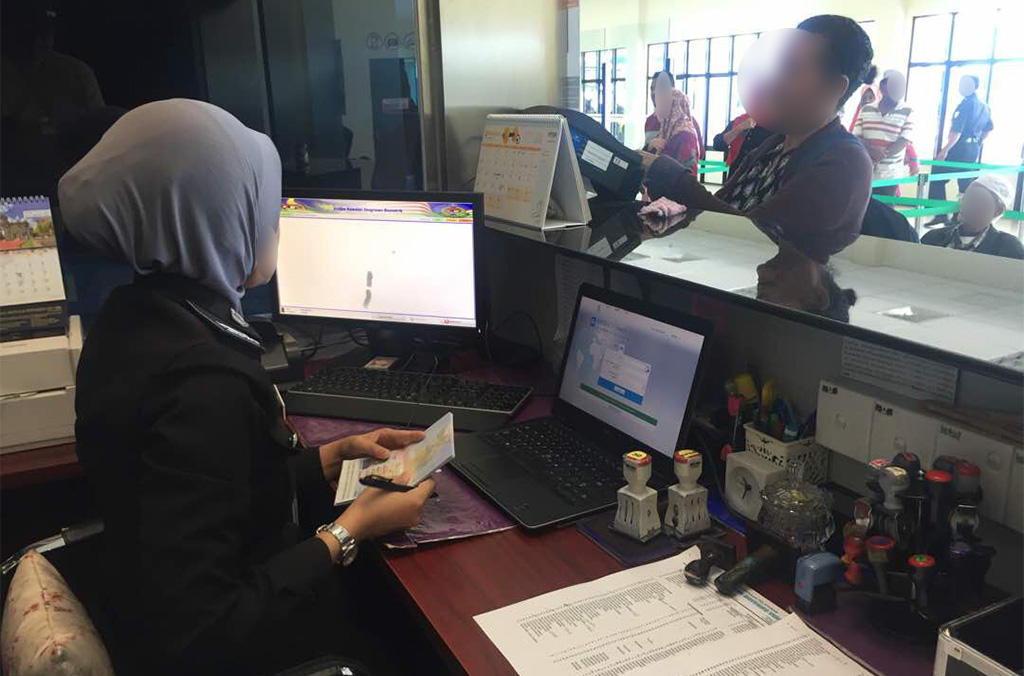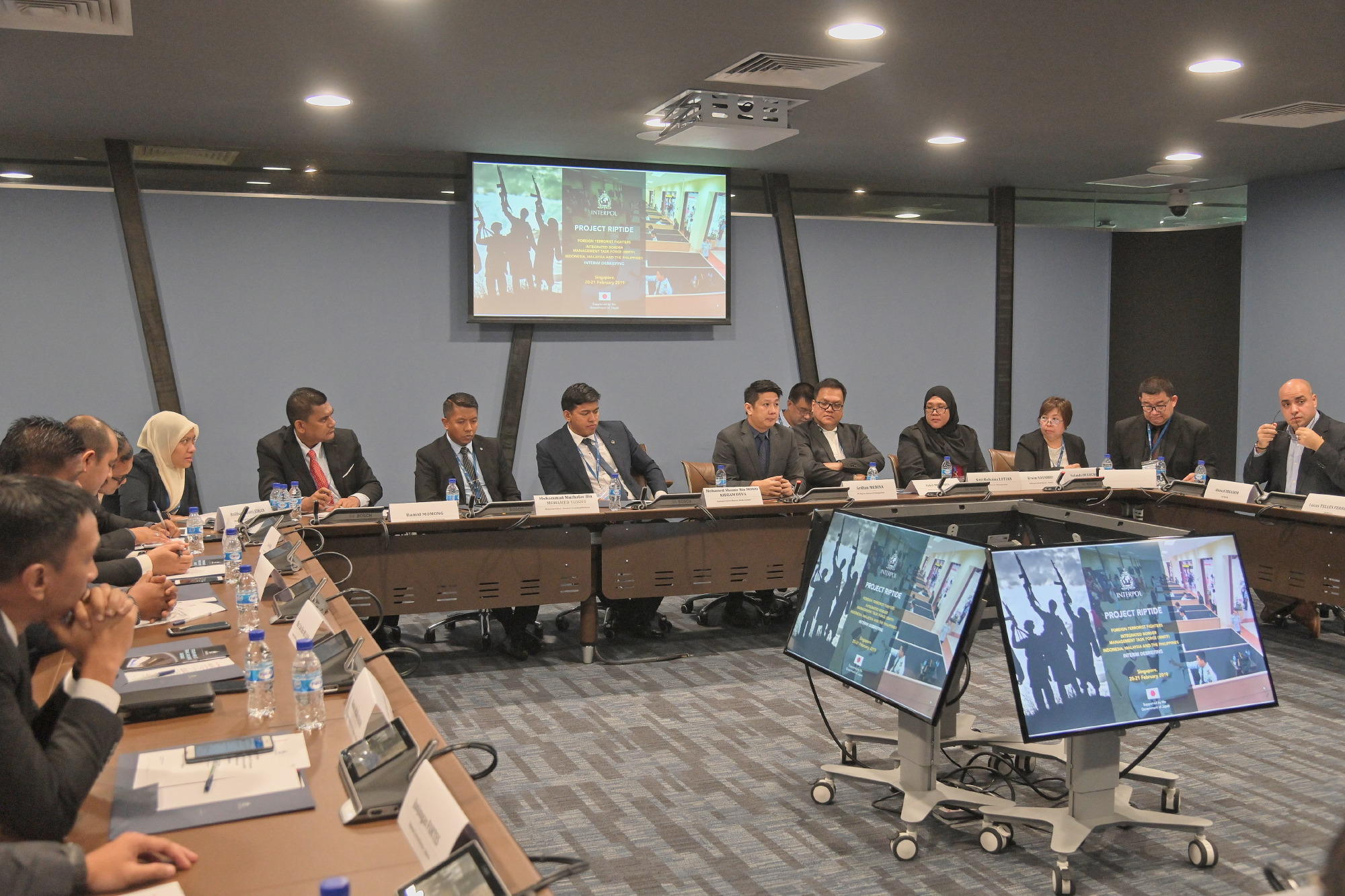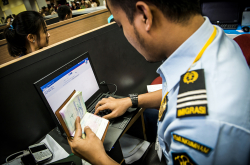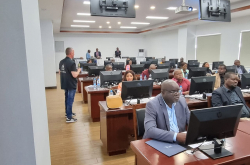SINGAPORE – Police, immigration and counter-terrorism officers from Southeast Asia came together to evaluate the successes of an INTERPOL border security project to counter foreign terrorist fighter movement in the region and prepare for future border operations under the next phase of the project.
A debriefing meeting of Project Riptide, an INTERPOL Integrated Border Management Task Force project on Foreign Terrorist Fighters (FTFs) in Indonesia, Malaysia and the Philippines, gathered 26 participants from the three countries to review the evolving challenges of FTF movement and INTERPOL’s counter-terrorism support to the region.
The two-day (20 and 21 February) meeting provided an overview of the outcomes of the activities conducted since the project began in April 2017, including training courses and on-the-ground operations at border points to identify and interdict suspected criminals and terrorists. Each of the participating countries shared the challenges faced and successes achieved during the first phase of the project.
The use of drones in supporting maritime border security was also discussed during the meeting.
A total of 15 operations were conducted during the first phase of the project, with 6.1 million queries of INTERPOL’s criminal databases resulting in 66 ‘hits’ and 61 arrests. Training on the use of INTERPOL’s policing capabilities was provided to more than 820 officers, and as a result details of 448 wanted persons – including 105 FTFs – were added to the Organization’s databases.
In one case, a Spanish national wanted by the Brazilian authorities on charges of drug trafficking, money laundering and association with a criminal organization was arrested following checks at the international airport in Bali, Indonesia when attempting to travel to the UAE.
Harold O’Connell, Acting Executive Director of the INTERPOL Global Complex for Innovation, highlighted the importance of a coordinated global effort to combat terrorism.
“Frontline police and immigration officers play a key role in the fight against terrorist movement. Initiatives such as Project Riptide which empower officers to make full use of INTERPOL’s policing capabilities to secure their borders and encourage information sharing between agencies and countries are paramount,” said Mr O’Connell.
The second phase of the project will continue to support law enforcement in Indonesia, Malaysia and the Philippines in identifying and preventing FTFs from transiting through land, air and sea border points in the region. Both phases are funded by the Government of Japan.
Building upon the outcomes of the first phase, through Project Riptide INTERPOL will coordinate border security operations in the three participating countries to screen travelers against INTERPOL’s criminal databases of wanted persons, notices and stolen and lost travel documents, and to increase national and regional border management cooperation. Related training courses will provide comprehensive instruction on using INTERPOL’s border security policing capabilities to frontline officers.
Border points not connected to INTERPOL’s databases will be provided with special kits to allow searches during the operations.
Project Riptide supports the goals of INTERPOL’s global counter-terrorism strategy, which seeks to assist member countries in reducing the cross-border movement of terrorists. In this respect, the project will also encourage the participating countries to exchange data on known and suspected terrorists globally via INTERPOL channels.




